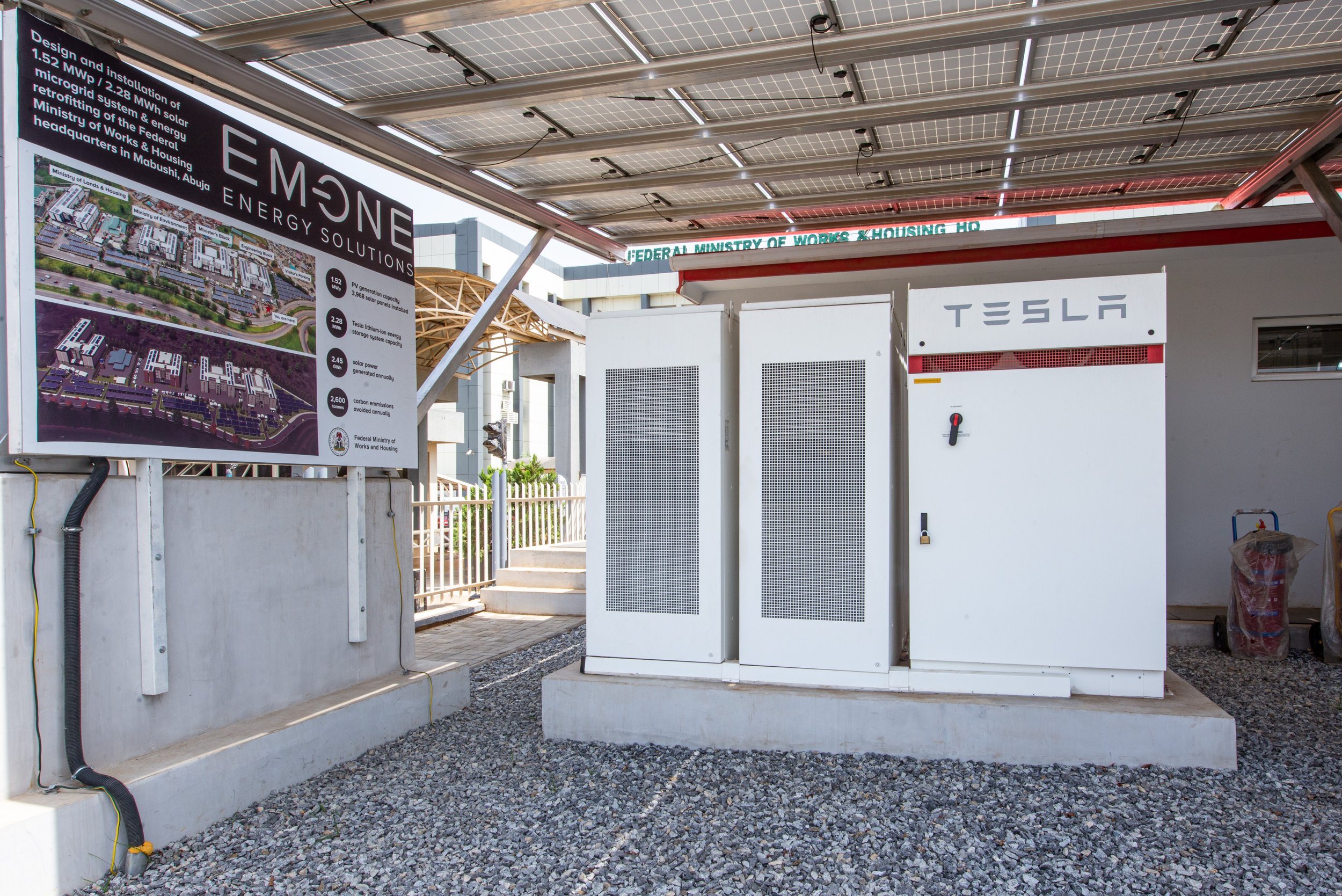EM-ONE microgrid powers Nigerian Government offices
July 2021
EM-ONE Energy has completed the turnkey engineering, procurement and construction of a 1.5 MWp PV and 2.28 MWh storage advanced microgrid that powers four Federal Government of Nigeria office buildings in central Abuja.
Aerial view of the 1.52 PV / 2.26 MWh storage microgrid in Mabushi, Abuja
EM-ONE Energy completed the engineering, design and construction of a 1.52 MWp PV and 2.26 MWh energy storage microgrid that powers multiple Federal Ministry office buildings in Nigeria’s capital city - Abuja. The project was funded by Nigeria’s Federal Ministry of Power Works and Housing.
The system is capable of exporting excess power generated into the grid. It is mounted on carport and rooftop canopies and generates 2.45 GWh of energy annually, reducing the Ministry’s energy dependence on non-renewable power sources by 71% and reducing CO2 generation by 2,600 tonnes. The solution is fully integrated and scalable so that capacity can be increased over time as demand grows.
The microgrid system leverages Tesla’s Powerpack as the energy storage solution
The scope of work included a complete energy efficiency retrofit and upgrade on the four office buildings. The retrofit will replace old electrical appliances and connections with energy-efficient ones reducing the office complex’s energy consumption by 40%.
The solar microgrid solution was built with tier-1 technologies. The advanced microgrid and energy storage system (ESS) and microgrid controller was provided by Tesla, while the energy efficiency components will be provided by Schneider Electric.
Babatunde Raji Fashola, SAN, Honorable Minister of Power, Works and Housing comments, “The project will be the first of Nigeria’s Federal Government office complexes to use renewable energy as their primary power source. Once completed, the system will save millions of Naira every year on a cleaner and more reliable power supply. This forms part of the Federal Government’s commitment to renewable energy and mini-grid policy.”
Mir Islam, EM-ONE’s CEO comments, “This is an exciting project for EM-ONE, we have a vision of making Nigeria an energy surplus country by developing self-sustaining energy producers that not only generate electricity for their own consumption but also export additional energy to the national grid. We are looking forward to working with the Federal Ministry and our valued technology partners on this pioneering project.”


